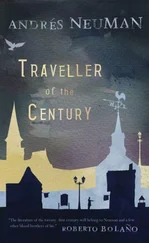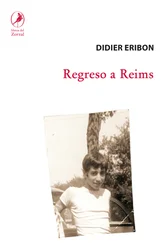D.F., August 2020
The organization of law enforcement and the operation of the judicial system is specific to each country, and even sometimes to each jurisdiction within a given country, as in the United States. Some explanations are therefore in order so as to make the account that follows clear for readers unfamiliar with the French systems.
In France there are two main law-enforcement institutions, which have roughly equivalent authority but distinct legal status and territories of operation. The national police is a civilian force that operates within cities and on their outskirts. The national gendarmerie is a military force operating in rural areas and small towns. There are also municipal police forces under the authority of local mayors, whose role is more limited, complementing the two other forces. In this text the generic term “police” is used to refer to law-enforcement bodies. Angelo’s family, who live on a farm, have only ever had dealings with the gendarmerie, and the two who killed the young man were adjudants (non-commissioned officers), the first rank above beat officer. For the purposes of clarity, the translation uses the term officers for these two in order to distinguish them from the other gendarmes involved in the operation. All belong to an elite unit, the GIGN, or Groupe d’intervention de la gendarmerie nationale (National Gendarmerie Intervention Group), which was created to intervene in terrorist attacks, hostage situations and the fight against organized crime – in other words, circumstances very different from a simple arrest.
The judicial system in France, as in the majority of countries in continental Europe and their former colonies, is based on civil law, derived from Roman law, and thus quite different from the common law that operates in the United States, the United Kingdom and the Commonwealth. One notable feature is the stage of judicial investigation, prior to the trial at criminal court, that is instigated by the procureur de la République (public prosecutor), or requested by the victim(s), and is conducted by a juge d’instruction (examining magistrate). The latter’s role is to establish whether a breach of the law has been committed and whether there is evidence to support charging the perpetrator(s). At the end of her or his investigation, after having received a statement ( réquisition ) from the public prosecutor and the responses ( observations ) from the counsels, the magistrate draws up a ruling ( ordonnance ), which may be either a dismissal ( non-lieu ), in which case there is no trial, or a referral to the criminal court ( renvoi ) where the accused will be tried. A decision to dismiss may be appealed in the same way as a court decision. If the decision or verdict is upheld on appeal, there remains the possibility of a petition to the Court of Cassation, but this court rules only on points of procedure, not on matters of substance; if procedural problems are confirmed, this leads to a new trial. One final stage, when all internal means of recourse are exhausted, is to appeal to the European Court of Human Rights, if the appellant considers that her or his rights have been violated. If the European Court rules in favor of the plaintiff, it may issue a decision against the state in question, accompanied by a requirement to pay the appellant a sum corresponding to the legal costs and to the material and moral harm suffered. However, such a decision does not mean that the case has to be retried and therefore does not expose the individuals charged to any form of judgment or sanction.
The victims in the present case belong to the social group known as gens du voyage (travelling people). Determining the right way to name them is always a sensitive matter, for there are several words whose definitions and implications vary depending on context and speaker. The choice has been made here to respect the way the protagonists identify themselves. As far as Angelo and his family are concerned, most of them think of themselves simply as voyageurs (Travellers). The term may seem paradoxical given that they are settled, but it is noteworthy that, at the family property, a former farm, all prefer to sleep in caravans rather than in the buildings, testimony to a sort of nostalgia for a traveling way of life despite the fact that some of them have never known it. They sometimes use the term manouche when speaking about themselves, but never rom (Roma) or gitan (gypsy), since the former relates in their eyes to a specific community and the latter has pejorative connotations. While the translation of the book uses US English, the British English writing of the term “Traveller” has been preferred to differentiate it from the word “traveler,” which refers to a person who is traveling. The double “l” signifies the identity of a group.
This is a book of a singular kind. It is not the result of a traditional sociological investigation. It is a counter-investigation. I explain how it arose in the prologue. It seeks to shed light on the death of a man through the accounts of those who killed him and those who were more or less immediate witnesses to the scene. It also attempts to analyze the judicial handling of the case up until it was dismissed, those who fired the fatal shots being exculpated on grounds of legitimate self-defense. Inset between these two elements is a description of the reactions of the deceased man’s family and a reconstruction of the victim’s life story. I present the accounts of the protagonists as faithfully as possible through the use of a subjective, third-person narrative. By contrast, I examine the judicial process through a critical lens, in order to show how choices were made early on between irreconcilable versions of the story, resulting in problematic decisions. On the basis of a re-examination of the individual accounts and the case file, I then propose a different version of the facts that makes it possible to integrate the contradictions, divergences and discrepancies that remain in the judges’ interpretation. The aim is thus to create, around this tragic case, an experimental form of writing that honors the diverse viewpoints, as evoked in the epigraph from Rumi, while at the same time ultimately acknowledging my own perspective, at the end of an inquiry inspired by the quotation from Nietzsche. The unusual approach I have adopted raises two questions.
First, can I be said to take sides? This is a charge readily leveled against sociologists and anthropologists, who are often suspected of taking the part of the dominated. The observation is not entirely without foundation, and there is, moreover, no such thing as total impartiality. But here the opposite argument is called for. Once the magistrates have fully accepted one version of the events and rejected the other, the simple fact of giving equal weight to each, as I do here, and thus presenting them as both equally credible, tends to be seen as a failure of impartiality, whereas in fact it testifies to an effort to restore it. In this respect I show, in the sections focusing on the conditions of production of truth and lies in legal cases, that this case is far from an anomaly. It is not the exception, but the rule. It reveals not a dysfunctional justice system but its normal functioning, which needs to be analyzed as such if we are to understand the logics that prevail in the handling of such cases.
Second, is this work still one of social science? Admittedly, it does not follow the traditional forms of the discipline. Subjective recounting of the facts belongs to literature, the conduct of the inquiry is reminiscent of a particular kind of journalism, and the reconstruction of the investigation without doubt echoes the form of the criminal investigation process. These comparisons are reasonable, in my view, and in no way discreditable. But I contend that I maintain certain fundamental principles of the social sciences: empirical research based on a field study supplemented by examination of documents; equal attention accorded to the words of all those involved; a commitment to subject all available evidence to critical examination; the desire to go beyond the individual case and reveal the generality of social processes; and, indeed, the acknowledgment of the presence of the researcher, whom I have chosen to present from the outset as one protagonist among others.
Читать дальше












